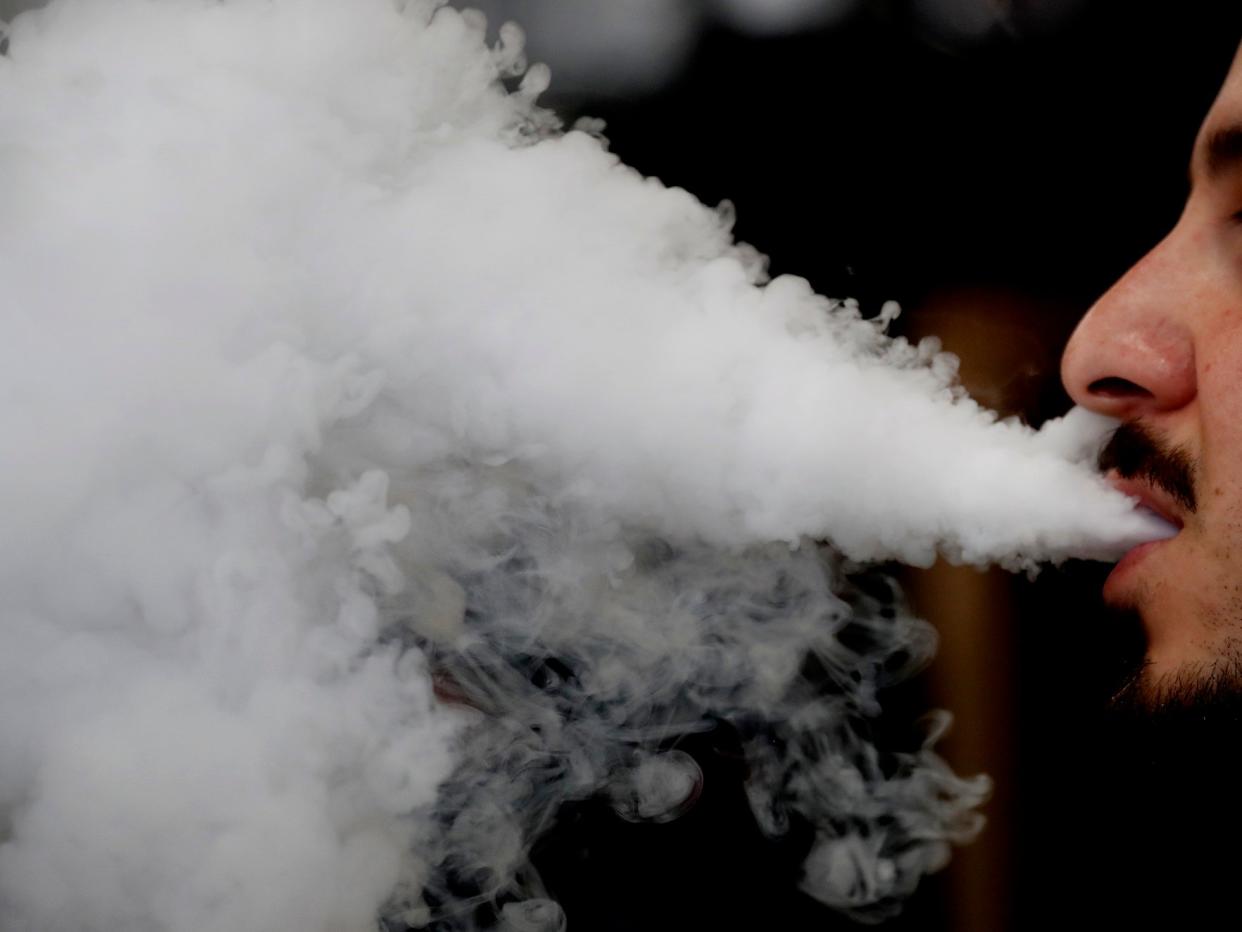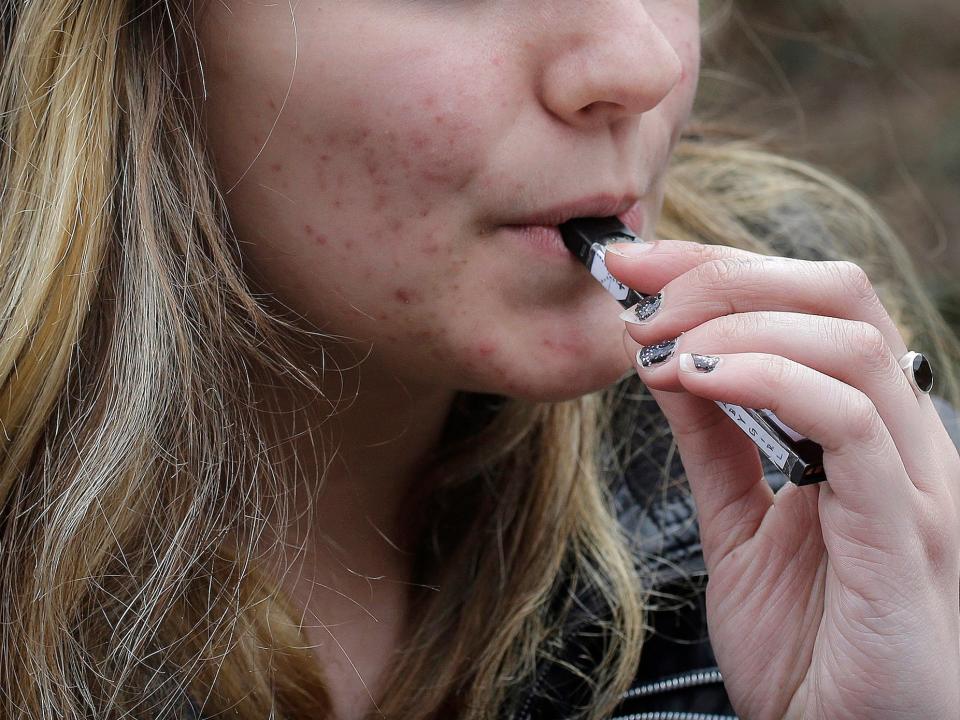Vaping for only a month can cause lung inflammation, even if you've never smoked before

Frank Augstein/AP
As vaping-related lung illnesses continue to mount, health officials are looking into which ingredients could be causing these potentially life-threatening health problems.
A new study looked at how vapes that contained the common vape juice additives propylene glycol and vegetable glycerin affected the lungs of healthy non-smokers.
Although one month of vaping these two additives didn't have a significant effect, vape users who puffed on their devices more than the minimum required amount had more inflammation than those who puffed less.
As vaping-related lung illnesses continue to mount in the United States, health officials are looking into nicotine- and THC-based vapes to see which ingredients could be causing these potentially life-threatening health problems.
Now, a new study that was started long before swaths of vape users were hospitalized due to their conditions has come out with findings that suggest certain oils added to vapes could be to blame for lung injuries.
The small study, published today in the journal Cancer Prevention Research, looked at how vapes that contained the common vape juice additives propylene glycol and vegetable glycerin affected the lungs of healthy non-smokers.
Health experts believe these two ingredients can get into a vape user's lungs while they're still in liquid, rather than aerosol, form, leading to fluid buildup and lipoid pneumonia.
To test this, the researchers randomly assigned 15 healthy non-smokers vapes that contained these ingredients, but no nicotine or special flavors like mint or mango, which are popular among vape users. The other 15 participants didn't use any vape devices.
"We wanted to look at individual components of e-cigarettes to see if they're responsible for causing any lung damage," Dr. Peter Shields, a thoracic oncologist at The Ohio State University Comprehensive Cancer Center and the study's lead author, told Insider. By keeping nicotine and flavors out of the vapes, they were able to study the two additives in question more accurately.
Before the experiment, the researchers taught the subjects how to use the vapes and instructed them to take at least 20 puffs in an hour's time twice daily. The vape users could make sure they were taking the correct number of puffs using an electronic counter that was part of the vape devices they used.
Prior to the start of the experiment, the researchers did tests on all 30 participants' lungs where they brushed the lung's inner lining to test for inflammation. They did this again at the end of the month-long experiment to see if any changes in lung health occurred.
After a month, most vape users' lungs weren't more inflamed than non-vape users

Steven Senne/AP
After one month, most of the vape users' lungs were no more inflamed than the lungs of the people who didn't vape during the one-month period from a statistical standpoint.
However, that doesn't mean there was no inflammation at all. According to Shield, there was inflammation in the vape users' lungs, it just wasn't at a level high enough to cause health concerns. (High levels of lung inflammation are usually associated with health problems like pneumonia and chronic obstructive pulmonary disease, or COPD, because inflamed lungs are more susceptible to infections and disease.)
"That inflammation doesn't always mean someone will get sick later," Shields said, "but from a public-health perspective, you'd rather not see changes at all."
But people who vaped more than the minimum had increased lung inflammation
Although one month of vaping propylene glycol and vegetable glycerin didn't have a significant effect, Shields' team did come away with one alarming finding. They found that the vape users who puffed on their devices more than the minimum required number of puffs had more inflammation than those who puffed less.
According to Shields, this finding suggests that increased vape use could lead to more significantly damaging lung effects, especially if used for a period longer than the one month duration of the experiment.
For this reason, Shields said it's best for people to abstain from vaping, whether it's a nicotine or THC vape, if at all possible.
"With everything going on, people shouldn't vape THC," Shields said. "I wouldn't recommend e-cigarette use if you've never used one before, like kids shouldn't start, and I encourage former smokers to stop using e-cigarettes over time."
Read more:

